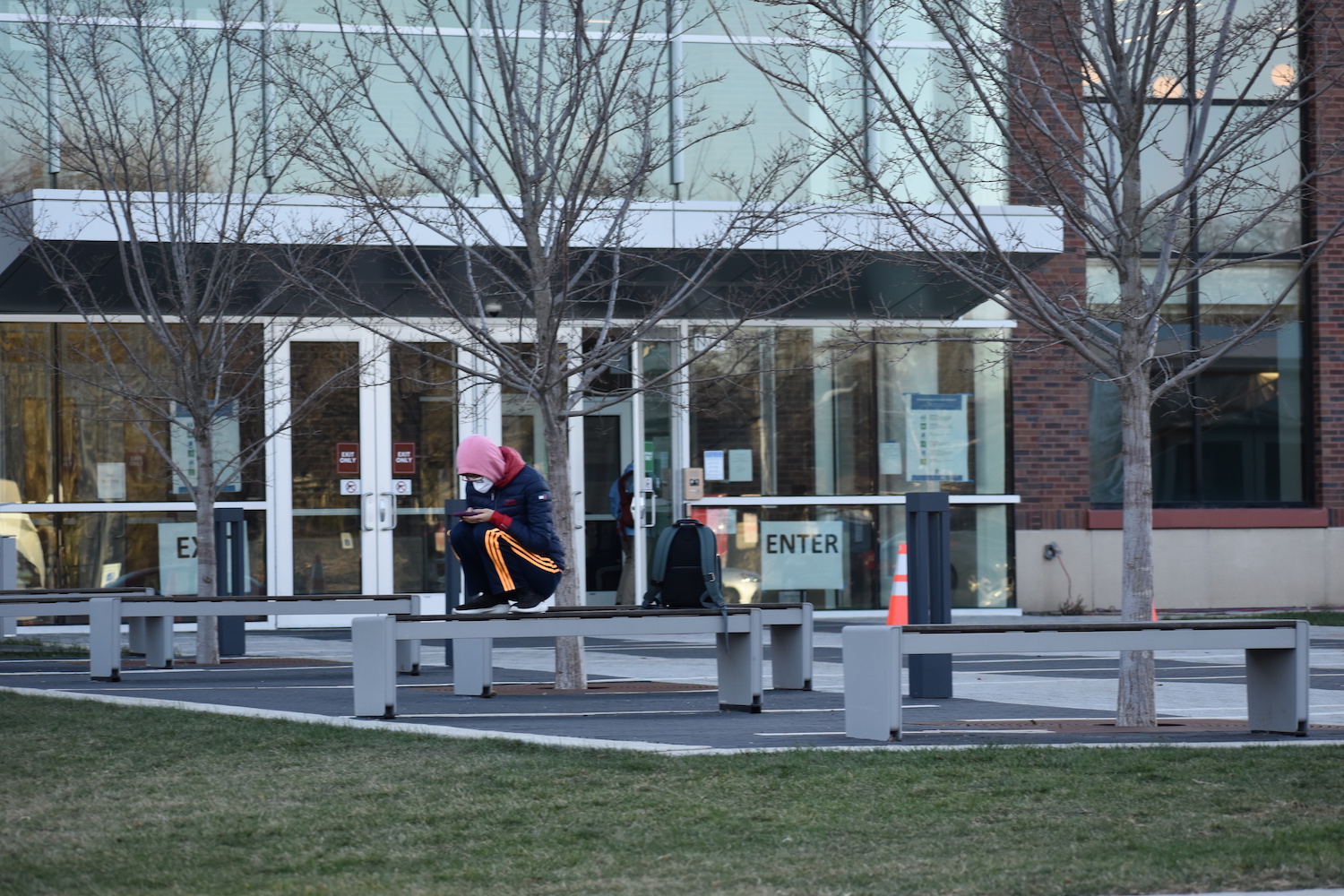
New Trier educators brief school board on importance of critical thinking while addressing ‘wrongs of the past’
Members of the New Trier High School Board of Education heard how district students engage in sensitive historical and cultural topics during a presentation from five of the school’s social studies teachers on Monday, Sept. 20.
The discussion at the board’s regular meeting is the first part of a series in which different departments will present to the board how they enable critical thinking and civil discourse in line with district goals, according to Peter Tragos, assistant superintendent for curriculum and instruction.
“At a time when teaching history has been national news, sparking rancorous debate at school board meetings across the country and throughout the national media,” he said, “we think it’s important to demonstrate how we teach at New Trier, how we teach students to think critically, how we teach a full rendering of history and civics, acknowledging the wrongs of the past and the promise of the future.”
Tragos is alluding to the national debate over addressing structural and overt racism in America’s culture, past and present, in the classroom.
The topic — which some connect to critical race theory, a graduate-school program not taught at New Trier High School, officials say — has sparked conflict in communities nationwide, but it has not led to public drama locally.
Tragos said the district’s goals include helping students understand the past and present “and develop the knowledge, skills and courage to be engaged and compassionate citizens without falling into cynicism or tipping towards adulation. And to do so, it takes a tremendous amount of hope, patience, knowledge of adolescent development and skilled teachers, all of which we have in good measure.”
The five social studies teachers who presented discussed the purpose of a social studies education, skills and disposition of historical thinking, unit planning and differentiation, teaching controversial issues, and how the department creates civil civic spaces.
The teachers discussed how they use historical documents to show that history is complicated, and that simply saying one side is good and one side is bad does not engage students and oversimplifies history.
“We can’t afford to leave students without complex thinking,” teacher David Heineman said.
The teachers also talked about how they choose the materials they use for their classes, and how they’ll use the same article for different lessons in different classes.
Teacher Laura Malia said she often relates the lesson a real-life scenario that her students will relate to.
When it comes to discussing controversial issues, there are multiple steps teachers take to address them.
Teacher Aileen Geary said when leading a class discussion on a controversial topic, faculty always assume there are going to be multiple perspectives within the classroom.
“We talk about helping the students to understand the context and generate their own genuine questions about the controversial issue,” Geary said. “We’re going to use the skills of the discipline to break down complex issues into discrete pieces, so that there’s something you can tackle.”
It’s also important to understand why people may feel differently about a historical issue, the teachers said.
“It doesn’t mean that you have to change your mind and agree with them,” Geary said. “We’re just trying to get an understanding of how it might be that someone might see this differently.”
Social Studies Department Chair Michael Christensen concluded the presentation by saying they want students to be “excellent” researchers and communicators who understand different perspectives. She said the hope is that the classroom is both a civil experience and a civic experience from which students will create spaces where people can work together once they move on from New Trier.
Board member Jean Hahn said she believes critical thinking and civil discourse are important skills to teach to students.
“From everything I understand about the future our children will inherit, those are the skills individuals are going to need to master to lead filling and impactful lives,” Hahn said.
The board of education also received an update on the school’s COVID-19 protocols and mitigation efforts.
Superintendent Dr. Paul Sally said the school’s COVID-19 rates are low, and that the most effective mitigation efforts are universal masking when indoors and vaccination rates. Sally reported that more than 90 percent of the school community has been vaccinated.
Sally added that he’d like to get more students involved in Shield testing, which is a saliva-based PCR test. The school’s testing rates have ranged from 388 to 512 individuals per week. Students who are unvaccinated are required to do Shield testing if they want to participate in extracurricular activities.
Students can get tested before their lunch periods, and because of state law, only qualified individuals are allowed to administer the tests. Sally talked about the possibility of opening Shield testing hours to before school to allow more students to test.
“We’d like to see these numbers higher,” Sally said in regard to the number of tests being given.
Board members also unanimously approved the 2021-2022 budget, and were introduced to the five exchange students at the school. Because of the pandemic, this is the first school year since 2019-2020 that exchange students attended New Trier. Two students are from Germany, two are from Italy and one is from Spain.
Additionally, a presentation was given on the school’s new website, which has been in the planning stages since late 2019. The website is set to launch on Oct. 12.
The Record is a nonprofit, nonpartisan community newsroom that relies on reader support to fuel its independent local journalism.
Become a member of The Record to fund responsible news coverage for your community.
Already a member? You can make a tax-deductible donation at any time.

Peter Kaspari
Peter Kaspari is a blogger and a freelance reporter. A 10-year veteran of journalism, he has written for newspapers in both Iowa and Illinois, including spending multiple years covering crime and courts. Most recently, he served as the editor for The Lake Forest Leader. Peter is also a longtime resident of Wilmette and New Trier High School alumnus.


